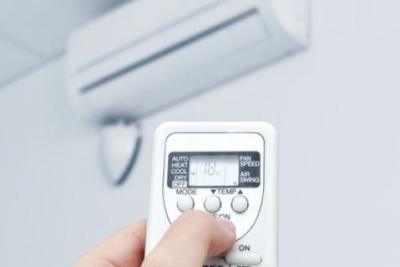In the sweltering heat of summer, three consecutive days of extreme temperatures and high humidity mark the peak of the season. This year, temperatures have soared to unprecedented levels since the onset of summer. People's daily lives have transformed into a variety of culinary metaphors: lying down feels like being stewed, getting up resembles steaming, stepping outside is akin to grilling, and returning home is like diving back into a simmering pot.

As temperatures soar, many people seeking respite from the heat often retreat indoors and rely on air conditioners. During summer, the cooling function is by far the most commonly used feature of air conditioners, while the dehumidification function is often overlooked. However, dehumidification can also prove incredibly effective in combating the oppressive conditions of summer. In this post, we’ll explore some key differences between these two functions to help you better understand which might suit your needs.
**Similarities Between Cooling and Dehumidifying**
Regardless of whether the air conditioner is operating in cooling or dehumidifying mode, the process begins when warm indoor air passes over the heat exchanger of the indoor unit. Water vapor in the air condenses into droplets at low temperatures and is drained away via the condensate pipe. Meanwhile, the cooled air exits through the air conditioner's vents.
**Differences Between Cooling and Dehumidifying**
When running in cooling mode, the air conditioner works to both lower the air temperature and remove moisture simultaneously. Users can adjust both the cooling temperature and fan speed. The air conditioner continuously runs until it reaches the desired temperature, providing stronger airflow and rapid cooling.
In contrast, the dehumidification mode also removes moisture while slightly lowering the temperature, but it operates differently. The dehumidification temperature and fan speed are typically fixed, with the fan running at a slower pace and the compressor cycling on and off. This intermittent operation helps extract moisture from the air without significantly dropping the temperature. The airflow is gentler, making it easier for moisture to adhere to the evaporator.
**Choosing Between Cooling and Dehumidifying**
Essentially, cooling and dehumidifying differ only in their control logic. Cooling provides continuous operation until the set temperature is reached, offering quick relief from the heat. Dehumidifying, on the other hand, works intermittently, with slower fan speeds to better extract moisture from the air. If your space is excessively hot and humid, cooling is ideal. For milder conditions where humidity is the main issue, dehumidification is the better option.
In the stifling heat of summer, maintaining comfort requires understanding the nuances of your air conditioning system. Whether you opt for cooling or dehumidifying depends on your specific needs. By knowing the differences, you can ensure a more pleasant environment all season long.
An industrial computer is a specialized computing device designed to operate in harsh industrial environments. These computers are built to withstand extreme temperatures, dust, moisture, vibrations, and other challenging conditions that would damage or render a standard desktop computer inoperable.
Mini Industrial PC is designed to provide reliable and high-performance computing for industrial applications. They often feature powerful processors, such as Intel Core i-series or AMD Ryzen processors, and can have large amounts of memory and storage to handle complex tasks.
In addition to standard computing features, industrial computers may also have specialized features such as multiple serial ports, Ethernet ports, and digital I/O ports for connecting to industrial equipment and sensors. Some industrial computers also support wireless connectivity options such as Wi-Fi and Bluetooth.
In conclusion, Embedded Industrial PC is specialized computing devices that are designed to operate in harsh industrial environments. They offer reliable and high-performance computing for a wide range of industrial applications, and their durability, customization options, and long lifecycle make them an ideal choice for industrial users.
Mini Industrial Pc,Industrial Mini Pc,Fanless Indutrial Pc,Industrial Computer,Embedded Industrial PC
Shenzhen Innovative Cloud Computer Co., Ltd. , https://www.xcypc.com